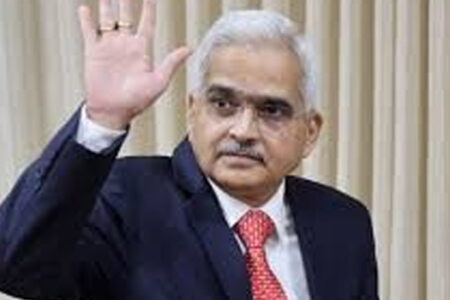In the last week of April, the Economic Offence Wing of the Mumbai Police arrested the promoters of Nirmal Lifestyle for allegedly failing to hand over flats to homebuyers invested in four projects in Mumbai’s central suburb Mulund.
Elsewhere, in Noida, Uttar Pradesh, Amrapali Stalled Projects Investments Reconstruction Establishment (ASPIRE) is busy completing 40,000-odd housing units sold by the erstwhile Amrapali Group, and handing them over to the homebuyers. ASPIRE is a not-for-profit company under Section 8 of the Companies Act, 2013, set up by the Supreme Court.
This is a unique case where India’s highest court and a set of commercial banks have been working together to complete a housing project, abandoned by a rogue builder. The Reserve Bank of India (RBI) is backing it with certain regulatory forbearance. With a lot of pride, the banking community calls this project “hamara aspire”.
A decade back, the Amrapali Group enjoyed the tag of one of the biggest real estate developers in India. Starting in 2003, the group reached its peak in 2015 when it was developing at least 50 projects — housing complexes, malls, an IT hub and a five-star hotel — spread across two dozen cities including Noida, Ghaziabad and Jaipur.
Overnight, Anil Sharma, an IITian, became a poster boy of affordable housing with the launch of the first project in 2003. Gradually, he expanded his empire in different parts of India. He also ventured into the FMCG sector, hospitality and film-making (Gandhi to Hitler and I Don’t Luv U). Sharma even contested the Lok Sabha elections in 2014 on a JD(U) ticket from Jehanabad. He was, in fact, the richest candidate in the poll fray in Bihar with ~850 crore assets. The voters didn’t love him.
Mahendra Singh Dhoni, Amprali’s brand ambassador, quit in April 2016 when a bunch of unhappy homebuyers, who didn’t see any sign of completion of the Noida project, took to social media. That’s the beginning of this story.
Smelling something rotten, Bank of Baroda, one of the lenders, moved the National Company Law Tribunal in 2017. A forensic audit followed the next year, unearthing a ~3,000-crore fund diversion. The Central Bureau of Investigation stepped in, arresting Sharma and a few others.
When the tribunal admitted the insolvency plea by Bank of Baroda, over a hundred homebuyers moved the Supreme Court.
In July 2019, the Supreme Court issued several directions to ensure completion of all pending projects of the Amrapali Group. It appointed R Venkataramani, then senior advocate of the Supreme Court (now Attorney General of India) as the receiver. It also cancelled the registration of the Amrapali Group under the Real Estate (Regulation and Development) Act, 2016.
The Supreme Court also gave two critical directions:
# Various lease deeds granted in favour of the Amrapali Group of companies by Noida and Greater Noida Authorities for the housing projects were cancelled and rights were vested with the receiver.
# The receiver was given powers to do anything that is necessary to ensure that the titles are passed on to the homebuyers and the possession is handed over to them.
In another order in October 2020, the Supreme Court allowed the receiver to incorporate a special purpose vehicle for completion of unfinished projects. That’s how ASPIRE was formed. The National Buildings Construction Corporation Ltd (NBCC) was tasked with the timely completion of the project.
The lenders’ consortium also included a few private banks that backed out at this stage. They were willing to give retail loans to the homebuyers but not a fresh round of corporate loans for completion of the project as the exposure to the group had already turned bad.
Seven public sector banks, led by Bank of Baroda, stayed put to see the project through, sanctioning ~1,500 crore. Bank of Baroda and Indian Bank committed ~300 crore each, followed by State Bank of India (~250 crore), UCO Bank and Punjab & Sind Bank (~200 crore each), Punjab National Bank (~150 crore) and Bank of India (~100 crore). They started disbursing the money from March 2022.
While the Supreme Court taking the onus on completing such a project is something unheard of, the RBI too extended a helping hand. The banks were convinced to extend fresh money — throwing good money after bad, as they say — after the RBI waived the income recognition, asset classification (IRAC) and provisioning norms. This means, even though the banks’ exposure had already turned bad, they didn’t have to declare the account bad and provide for it.
The RBI also allowed them to treat this particular exposure as part of the so-called priority loans. Under norms, banks are required to disburse 40 per cent of their loans to the priority sector. The definition of priority sector is dynamic. The banks also demanded a central government guarantee for the project but that was not granted.
Even though the highest court in its July 2019 judgment canceled all lease deeds granted in favour of the Amrapali Group of companies by Noida and Greater Noida authorities for the housing projects giving freedom to the receiver to do everything possible for completing the project, banks were not comfortable disbursing money as they didn’t have the title documents in their custody as collateral.
The Supreme Court had to step in again. In yet another judgment in April 2022, it substituted the Noida and Greater Noida authorities by the receiver as the original lessee. The court also directed the Noida and Greater Noida authorities to make necessary amendments in the lease deeds and make available such deeds to the receiver, who can create equitable mortgage in favour of the lenders.
The Meerut Development Authority, Bihar State Industrial Development Corporation, and a few others, involved in Amrapali projects were also directed to follow suit within a week of passing this order.
That ensured the fund flow from banks.
Thousands of housing units have been handed over to the homebuyers who had been waiting for years. By the end of FY24, the entire process will complete, drawing curtains on this out-of-the-box experiment.
The banks will certainly get back their money. There are no takers for some of the housing units as they were booked benami by the builder himself. Besides the normal repayment, the banks can sell such units and generate cash — something which was not in their original scheme of things.
Many homebuyers cried while taking possession of the housing units. The bankers involved in the grand rescue act plan should buy a unit each in memory of the unique experiment where India’s highest court, the banking regulator and the lenders joined hands to save unsuspecting homebuyers from a rogue promoter.



